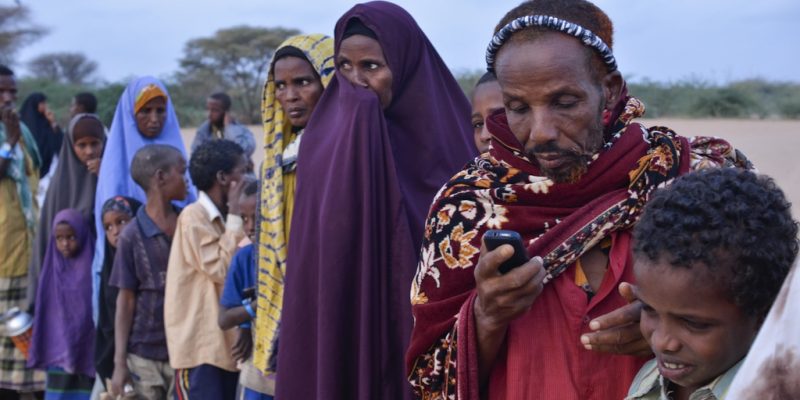O
May 16, 2016 -Today a new academic report is launched by the Open University, Mapping Refugee Media Journeys: Smartphones and Social Media Networks. The research, conducted in partnership with France Médias Monde, has identified a huge gap in the provision of relevant, reliable and timely digital news and information for refugees.
For refugees coming from war-torn Syria or Iraq, the smartphone is as essential as food and shelter. It is a blessing but also a curse. The digital traces that they leave behind make refugees vulnerable to surveillance, intimidation and exploitation by state and non-state actors. Fears about security and privacy force them to depend upon unreliable and alternative sources circulating on social media by smugglers, dealers and handlers. Going digitally underground, for example by using closed platforms like WhatsApp, exposes refugees to even greater risks and exacerbates a dire humanitarian crisis.
The report calls for the European Commission to convene a partnership between member states, news organisations, tech companies, NGOs and other stakeholders, in order to orchestrate a sustainable, up-to- date news and information strategy for refugees based upon the best practice principles that the report sets out.
The report expresses concern that this news and information deficit is in breach of the UN’s 1951 Refugee Convention: providing structured and supportive information to refugees in an organised and timely manner is a moral obligation. It argues that the so-called ‘refugee crisis’ is such a politically hot issue that news and government agencies are shying away from fulfilling their responsibilities under the Refugee Convention, for fear of being seen to facilitate refugees coming to Europe. Paralysis has set in, which only an organisation like the European Commission can help break.
Carried out between September 2015 and April 2016, the research examines the uses of smartphones and social media by refugees as they flee from locations such as Syria and Iraq to seek safety in Europe. It drew upon a range of academic and practitioner expertise using mixed and mobile methods: serial interviews with Syrian and Iraqi refugees based in Paris and Lesvos, London and Swansea; an analysis of refugee social networks (Facebook and Twitter especially) by computer scientists; and interviews with staff at the European Commission, international broadcasters and NGOs. It also includes an analysis of news media content and a critical review of relevant academic literature, drawing out the implications for policy makers and news practitioners.
The research points to a lack of co-ordination in the provision of relevant, reliable and timely digital news and information for refugees, especially by news organisations, whose outputs are too often about, not for or with, refugees.
Although there are a growing number of digital resources for refugees, many are not adequately resourced or sustainable, and can do more harm than good if they disseminate misinformation. Quick tech fixes don’t work, especially in a context where European governments and newsrooms are failing to help provide what refugees need in this humanitarian crisis. They fear that they may be seen to be facilitating refugees’ attempts to seek asylum in Europe. The nature of refugees’ experiences and policies and implementation are changing so fast that we now need to consider how best to create best practice in the digital management of migration.
The report ends with a set of 8 best practice principles to contribute to this effort. In summary, these principles are:
1. User-centred: refugee involvement in design and implementation is vital;
2. Secure and Private: reliability is crucial;
3. Trustworthy: resources must be trusted to be used;
4. Accessible: must be made easily accessible – cost, technology, language and literacy;
5. Strategic: aligning organisational strategy with tech output is a must, as is ensuring that the resource produced has a clear strategic goal;
6. Pragmatic: Consider the reusing or repurposing of existing resources rather than creating from scratch;
7. Novel: Ensure effective field scanning to ensure that the project does not replicate an existing resource and has a Unique Selling Point (USP);
8. Sustainable: long term planning, resourcing and maintenance is vital to ensure that an initiative is not launched and then abandoned.










